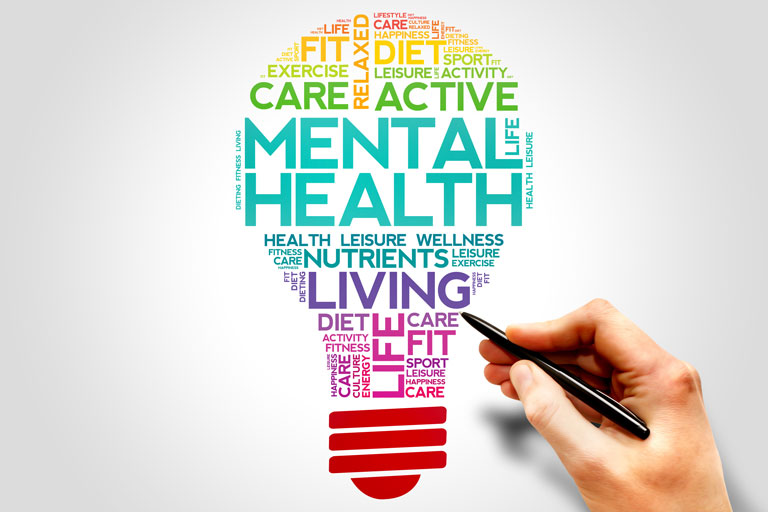Mental Health, also known as Mental Health, is currently a hot topic. Rightly so! Because more than 20% of Germans feel their mental health is affected. That’s quite a lot. Therefore, it’s even more important to consider what one can do for their own mental health and how to support others in building mental health.
We’d like to present you with 5 tips for mental health:
-
Sleep!
Sleep? Yes, you heard that right. Adequate sleep is a crucial component of mental health. In her book “Thrive,” author Arianna Huffington dedicates almost half of the book to the topic of sleep and its significance. She describes that it’s essential for long-term well-being to get enough sleep. Sleep has a strong effect on our emotions, creativity, decision-making, self-confidence, and overall well-being.
While many understand in theory that adequate sleep and breaks are necessary, it often fails in practice. Other things tend to take priority in daily life. So the first step is to decide that sleep deserves a high priority in one’s life.
Practically, it can help to buy a comfortable pillow, darken the room well, and keep it cool. Avoiding using technical devices shortly before sleep, not drinking coffee after 2 pm, and developing an evening routine can also be beneficial. For example, peacefully drinking a cup of tea and writing down three things that went well today or things to be grateful for.
-
Be Active
However, not only rest is part of mental health. It has been proven that exercise has a positive impact on mental health. Exercise reduces the stress hormone cortisol and releases the happiness hormone serotonin. You can freely choose whether you want to exercise outdoors, choose a team sport, or prefer spending time in the gym.
It’s worth finding out which sport suits you best because it makes it much easier to develop a routine. Even though you’ll likely have to overcome some inner resistance at the beginning. By the way, Self-Leadership is essential when building new habits. If you want to learn more about it, then read this blog article on cognitive self-leadership competence.
-
Strengthen Social Relationships
Social relationships enhance our well-being. A stable network of relationships strengthens personal resilience and helps us get through challenging times. However, even in everyday life, meetings with family and friends can be uplifting. It’s important to surround yourself with people who have a positive impact.
It’s worth building solid relationships and consciously appreciating the people in your life. Sometimes, we tend to thank the least the people who are most important to us. Perhaps you can arrange a meeting with one of your loved ones right now.
-
Practice Mindfulness
In times when we’re not feeling so good, we often lose sight of the good things quickly. This is where practicing mindfulness can be helpful. Consciously focus on the good things – what you’re grateful for, what you’re proud of, what you’re looking forward to. These small exercises help you to be present in the moment. There are also a variety of breathing exercises that can help you arrive in the moment. Scientific studies have shown a connection between mindfulness and life satisfaction as well as mental health.
-
Talk About Feelings
When it comes to positive emotions, we often find it easier to name them. However, when we feel sad, lonely, or discouraged, we often don’t dare to talk about it. We feel alone with these emotions. However, if we have the courage to open up, we often realize: We are not alone with them. If we manage to express ourselves, it can greatly relieve our psyche. Just talking about it helps and already has a relieving effect.



